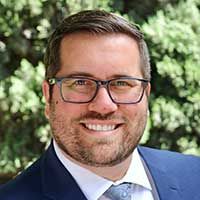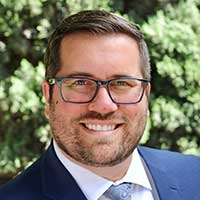For a Happy Retirement, Be Like Bill Gates
Microsoft's founder has found fulfillment in semi-retirement after leaving his career, and you can, too, if you follow his lead.


Profit and prosper with the best of Kiplinger's advice on investing, taxes, retirement, personal finance and much more. Delivered daily. Enter your email in the box and click Sign Me Up.
You are now subscribed
Your newsletter sign-up was successful
Want to add more newsletters?

Delivered daily
Kiplinger Today
Profit and prosper with the best of Kiplinger's advice on investing, taxes, retirement, personal finance and much more delivered daily. Smart money moves start here.

Sent five days a week
Kiplinger A Step Ahead
Get practical help to make better financial decisions in your everyday life, from spending to savings on top deals.

Delivered daily
Kiplinger Closing Bell
Get today's biggest financial and investing headlines delivered to your inbox every day the U.S. stock market is open.

Sent twice a week
Kiplinger Adviser Intel
Financial pros across the country share best practices and fresh tactics to preserve and grow your wealth.

Delivered weekly
Kiplinger Tax Tips
Trim your federal and state tax bills with practical tax-planning and tax-cutting strategies.

Sent twice a week
Kiplinger Retirement Tips
Your twice-a-week guide to planning and enjoying a financially secure and richly rewarding retirement

Sent bimonthly.
Kiplinger Adviser Angle
Insights for advisers, wealth managers and other financial professionals.

Sent twice a week
Kiplinger Investing Weekly
Your twice-a-week roundup of promising stocks, funds, companies and industries you should consider, ones you should avoid, and why.

Sent weekly for six weeks
Kiplinger Invest for Retirement
Your step-by-step six-part series on how to invest for retirement, from devising a successful strategy to exactly which investments to choose.
Netflix has an outstanding documentary on Bill Gates called Inside Bill’s Brain. It’s especially relevant for today’s retiree.
The documentary is not about the rise to power of one of the world’s richest men. It’s not about the wars that were fought in the boardroom of Microsoft or the antitrust litigation. It’s not about the rise of personal computing or Bill’s impact on technology.
It’s a more personal look at the man, his wife, his relationships and his life after his successful career. What does Bill Gates do with all his extra time? What is he doing after Microsoft?
From just $107.88 $24.99 for Kiplinger Personal Finance
Become a smarter, better informed investor. Subscribe from just $107.88 $24.99, plus get up to 4 Special Issues

Sign up for Kiplinger’s Free Newsletters
Profit and prosper with the best of expert advice on investing, taxes, retirement, personal finance and more - straight to your e-mail.
Profit and prosper with the best of expert advice - straight to your e-mail.
So many people today face down retirement as a daunting challenge, wondering how they will succeed in this next phase of their life. Where will you spend your time? Where will you find meaning? Where will you find fulfillment?
Here are my top takeaways from the Gates documentary for today’s retiree:
Carve out space to think.
Bill Gates at the peak of Microsoft would go on what he called “think weeks.” He would go out on a weekend retreat by himself in the smallest and most spartan of accommodations. With a fridge full of Diet Coke and a bag full of books, he would get away, alone to read, write and think.
He continues that habit today in earnest. Now running his foundation and using his resources to fight global health issues, getting away from it all is still just as important.
Maybe retirement allows more time for a “think week.” Maybe that self-exploration and self-discovery will calm your spirit and bring clarity on this next phase. In the retirement rush to go out and travel the world — set aside some time for you — some peace and quiet. Take time for yourself to clear your head and think about what you really want in retirement.
Sometimes simple is better.
The minimalist accommodations on Gates’ retreats demonstrate that not everything needs to be five star to be thoroughly enjoyed. Reflecting on his life — some of the greatest joys were the simple things.
Joy in retirement might be tennis with a friend, or a canoe on a calm lake. It might be joining a hiking club, tent camping in the desert or a good book by the pool.
Happiness is not always about the glitz and the glamour. Valuing the little pleasures around you in retirement can bring joy.
Value and invest in relationships.
Watching Bill’s relationship with his wife is inspiring. Their closeness, how they work together and trust each other.
Gates works more closely with his wife at the foundation than he ever did working at Microsoft. It’s their shared vision and passion that gives that work more meaning.
Maybe retirement is a new time to reconnect with your spouse or partner? Maybe reconnect with an old friend or get closer with a grandchild?
Retirement offers the time to allow you to reconnect and establish deeper relationships with those you value most.
Spend time doing something worth doing.
Some might argue some of Bill Gates’ best work happened after his career at Microsoft with his foundation. You might not have your own family foundation, but your contribution doesn’t need to stop when the paycheck does.
You can consult the professionals of tomorrow. You can coach and mentor. You can let your voice be heard on Twitter. Create a blog or a podcast. Write a book.
My own grandmother never published anything before she retired. After retirement, she finally had the time to write.
When you retire, you’ll have time to do things that you think will make a difference or things you find personal value. Follow those instincts. Know that the technology exists today to help you make it a reality in ways not available to the generations before you.
Keep learning.
I’m fascinated by Bill Gates and his desire to learn and to grow. Despite all his accomplishments, he’s still trying to understand more and find areas where he can make a contribution.
Being a lifelong learner can bring extra fulfilment in retirement. Maybe it’s time to learn a new language or audit a college class. Maybe you’ve been an attorney all your life but could find great joy in watercolor classes.
Understand that fulfillment in this phase takes some effort and some time, and often the most active retirees are the happiest.
People who approach retirement often spend a significant amount of time thinking through the financial numbers required for retirement. As important as that is, preparing for the psychological adjustment of retirement also deserves significant attention.
Scot Landborg is an investment adviser representative of, and securities and advisory services are offered through USA Financial Securities Corp., Member FINRA/SIPC. A registered investment adviser located at 6020 E. Fulton St., Ada, MI 49301. Sterling Wealth Partners is not affiliated with USA Financial Securities. CA License #0G89727
Investment Adviser Representative of USA Financial Securities. Member FINRA/SIPC A Registered Investment Advisor. CA license # 0G89727 https://brokercheck.finra.org/
Profit and prosper with the best of Kiplinger's advice on investing, taxes, retirement, personal finance and much more. Delivered daily. Enter your email in the box and click Sign Me Up.

Scot Landborg has over 17 years of experience advising clients on retirement planning strategies. Scot is CEO and Senior Wealth Adviser for Sterling Wealth Partners. He is host of the retirement planning podcast Retire Eyes Wide Open. Scot is a regular contributor to Kiplinger.com and has been quoted in "U.S. News & World Report," Market Watch, Yahoo Finance, Nasdaq and Investopedia. He also formally hosted the nationally syndicated radio show "Smart Money Talk Radio."
-
 Nasdaq Leads a Rocky Risk-On Rally: Stock Market Today
Nasdaq Leads a Rocky Risk-On Rally: Stock Market TodayAnother worrying bout of late-session weakness couldn't take down the main equity indexes on Wednesday.
-
 Quiz: Do You Know How to Avoid the "Medigap Trap?"
Quiz: Do You Know How to Avoid the "Medigap Trap?"Quiz Test your basic knowledge of the "Medigap Trap" in our quick quiz.
-
 5 Top Tax-Efficient Mutual Funds for Smarter Investing
5 Top Tax-Efficient Mutual Funds for Smarter InvestingMutual funds are many things, but "tax-friendly" usually isn't one of them. These are the exceptions.
-
 Social Security Break-Even Math Is Helpful, But Don't Let It Dictate When You'll File
Social Security Break-Even Math Is Helpful, But Don't Let It Dictate When You'll FileYour Social Security break-even age tells you how long you'd need to live for delaying to pay off, but shouldn't be the sole basis for deciding when to claim.
-
 I'm an Opportunity Zone Pro: This Is How to Deliver Roth-Like Tax-Free Growth (Without Contribution Limits)
I'm an Opportunity Zone Pro: This Is How to Deliver Roth-Like Tax-Free Growth (Without Contribution Limits)Investors who combine Roth IRAs, the gold standard of tax-free savings, with qualified opportunity funds could enjoy decades of tax-free growth.
-
 One of the Most Powerful Wealth-Building Moves a Woman Can Make: A Midcareer Pivot
One of the Most Powerful Wealth-Building Moves a Woman Can Make: A Midcareer PivotIf it feels like you can't sustain what you're doing for the next 20 years, it's time for an honest look at what's draining you and what energizes you.
-
 I'm a Wealth Adviser Obsessed With Mahjong: Here Are 8 Ways It Can Teach Us How to Manage Our Money
I'm a Wealth Adviser Obsessed With Mahjong: Here Are 8 Ways It Can Teach Us How to Manage Our MoneyThis increasingly popular Chinese game can teach us not only how to help manage our money but also how important it is to connect with other people.
-
 Looking for a Financial Book That Won't Put Your Young Adult to Sleep? This One Makes 'Cents'
Looking for a Financial Book That Won't Put Your Young Adult to Sleep? This One Makes 'Cents'"Wealth Your Way" by Cosmo DeStefano offers a highly accessible guide for young adults and their parents on building wealth through simple, consistent habits.
-
 Global Uncertainty Has Investors Running Scared: This Is How Advisers Can Reassure Them
Global Uncertainty Has Investors Running Scared: This Is How Advisers Can Reassure ThemHow can advisers reassure clients nervous about their plans in an increasingly complex and rapidly changing world? This conversational framework provides the key.
-
 I'm a Real Estate Investing Pro: This Is How to Use 1031 Exchanges to Scale Up Your Real Estate Empire
I'm a Real Estate Investing Pro: This Is How to Use 1031 Exchanges to Scale Up Your Real Estate EmpireSmall rental properties can be excellent investments, but you can use 1031 exchanges to transition to commercial real estate for bigger wealth-building.
-
 Should You Jump on the Roth Conversion Bandwagon? A Financial Adviser Weighs In
Should You Jump on the Roth Conversion Bandwagon? A Financial Adviser Weighs InRoth conversions are all the rage, but what works well for one household can cause financial strain for another. This is what you should consider before moving ahead.